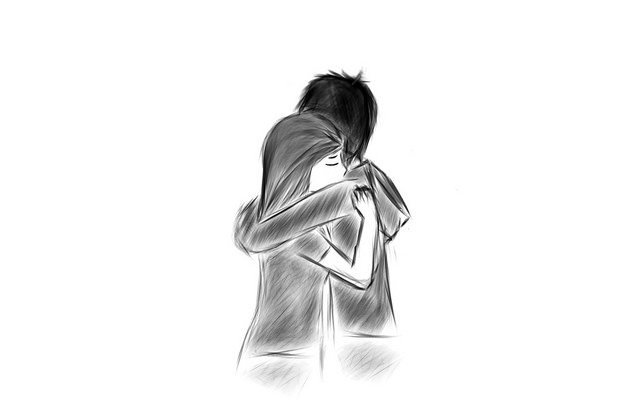Read next: What I Wish I could tell a New Widow in her Grief.
I’ll never forget that visit.
I was called to the ICU for a patient death.
I swiped my badge to let myself into the unit and went straight to the nurses’ station. The nurse manager led me into the room where an elderly man lay lifeless on the bed, his wife standing next to him staring blankly.
I introduced myself and asked if there was anyone I could call for her, if there was anything she needed, and attempted to make a connection with her. She quickly said no and indicated that I was intruding. I wanted so badly to say the right thing, anything that would ease her sorrow. Instead, I experienced a big fat empathic fail.
We’ve all been there: a funeral visitation, the hospital room of a friend who’s just received a frightening diagnosis, a coffee date with someone who’s been downsized at work. Frequent encounters with people who are struggling with grief, fear, sadness, and anger are not uncommon and often leave many of us at a loss, not knowing what to say, how to say it, or what to do to help. It’s a conundrum shared by medical personnel, parents, siblings, friends, ministers, and even people who have been trained to show empathy in difficult situations.
When I was a hospital chaplain, I struggled daily with what I could say or do to help someone feel better. I had the opportunity to witness (and, unfortunately, offer) both incredibly empathic and horribly inept responses to tragic news and difficult circumstances.
Encounters between the hurting and those who desperately want to help often resembles watching two trains collide—a mashup of honorable intentions and utter despair. Trust me—it isn’t pretty when one’s response to someone else’s pain serves only to discount, discredit, or dismiss.
It seems that, in general, we are a culture that has very low tolerance for discomfort. We want a pill to swallow or a quick fix to make the pain go away and restore the bliss of ignorance.
So, when someone we care about is hurting, we tend to throw at them the quickest, easiest fix we can imagine. The problem is that what we say or do often serves only to make matters worse. When we’re uncomfortable with another person’s pain, we often resort to clichés and euphemisms that ultimately add insult to injury.
So, here are a few phrases to avoid saying when someone you care about is hurting:
1. Any phrase that begins with the words, “At least…”
I hope this is obvious, but, “At least you know you can get a job” is not a helpful response when someone is struggling after being fired. “At least he lived as long as he did” is not the thing to say when someone is grieving. I know it’s tempting to point out the silver lining when someone is having a hard time. But it’s dismissive and takes permission away from the person experiencing the pain.
2. “Everything happens for a reason.”
I know this one is a favorite for many, and for some people it does bring an amount of comfort. Here’s the thing, though: for others of us, it smacks of self-righteousness and dares suggest that God or the universe (whatever your interpretation) is playing around with our lives and the lives of those we love. Not cool.
3. Advice, particularly that begins with, “You should (or shouldn’t)…”
Most of us love to give advice, especially when someone is facing a situation that feels similar to something we’ve been through. “You should hire a lawyer.” “You shouldn’t let this get you down.” “You should talk to your boss again.” “You should ask for an autopsy.” Y’all, seriously, no. Just don’t go there. Even with good intentions, our advice is wrought with our own perspectives and judgments. The person who is in pain does not need advice. They need to be heard, validated, and loved through their hurt. (More on that in a minute.)
4. Really anything that tries to explain or take away the other person’s pain.
Here again, most of us really like to feel helpful, and often this leads to us making guesses or assumptions about situations that really only add to the confusion or dismay. “They probably just thought you were overqualified.” While this seems like a kind thing to say, if someone didn’t get the job they really needed, it isn’t helpful. “The doctors surely did everything they could. Just be thankful your dad didn’t suffer.” Ugh. Again, I know phrases like this one are often stated with the best intentions, but, they lack empathy.
5. “There must be something you need to learn.”
Okay, I’m ending this list with this one even though I could probably go on for pages. Indeed, we all often learn important lessons through our struggles. But, this usually happens in hindsight and without someone else’s prompting. Saying this to someone who is in the middle of a struggle feels patronizing and, frankly, mean.
It’s essentially like saying, “You’re so hardheaded, the only way you can learn this lesson is to lose your job, have a miscarriage, or get a divorce.” It also reeks again of God/the universe toying with our lives. That’s a hard pill for a lot of us to swallow, and for many of us, just plain awful theology/philosophy.
So, you may be wondering, “Well, what in the world can I say?”
The truth is, the best gift we can offer to someone who is suffering is our presence.
Being able to sit with someone else’s pain, to be available and undistracted, to bear witness to and share in their feelings is basically the definition of empathy. Brené Brown defines empathy as “feeling with people.” Even if you’ve never faced the circumstances the other person is facing, chances are you’ve experienced the same feelings at one time or another. Empathy is tapping in to those feelings and maybe saying, “I hope you know how much I care about you and am here when you need to talk.”
One of my favorite quotes is from Henri Nouwen:
“When we honestly ask ourselves which persons in our lives mean the most to us, we often find that it is those who, instead of giving advice, solutions, or cures, have chosen rather to share our pain and touch our wounds with a warm and tender hand. The friend who can be silent with us in a moment of despair or confusion, who can stay with us in an hour of grief and bereavement, who can tolerate not knowing, not curing, not healing and face with us the reality of our powerlessness, that is a friend who cares.”
If I could have a do-over on that hospital visit, I’d probably go in and pull a chair up next to the bed, set a box of tissues (the good kind, not hospital-issue) on the bedside table and gently touch the woman’s shoulder as I quietly exited the room. I totally understand the desire to fix or take away pain, but it has been my experience that most often the best thing to say is nothing at all.
~
Author: Marjorie Avent
Image: Lulu Sunset/Flickr
Editor: Catherine Monkman
Copy & Social Editor: Sara Kärpänen
 Share on bsky
Share on bsky






Read 40 comments and reply